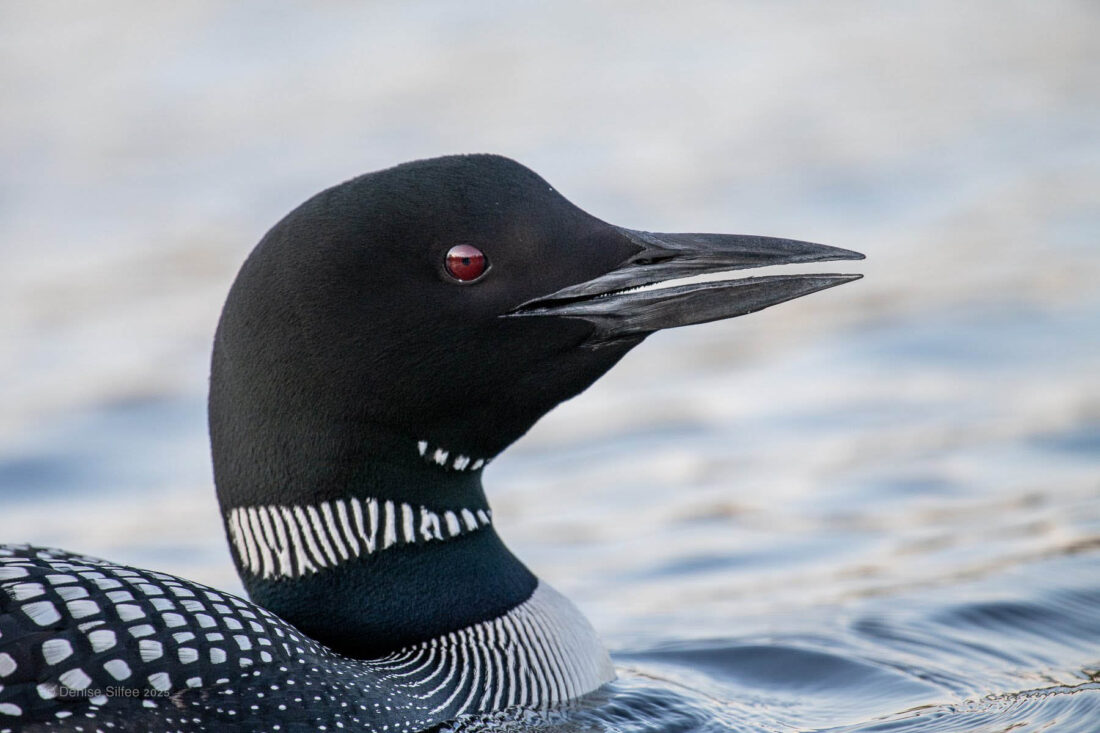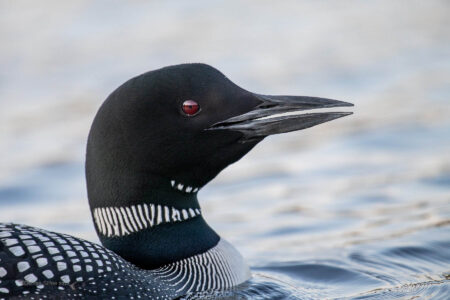Loon Zooms return today
Adirondack Loon Center offering online presentations through April

Learn about loons all winter long with Loon Zooms. Hear from experts in the field sharing insights about loon populations in New York, Vermont, Maine, South Carolina and Washington. (Provided photo — Denise Silfee)
SARANAC LAKE — The Adirondack Center for Loon Conservation’s Loon Zooms series lineup begins today. Six online presentations will be offered at 7 p.m. on the third Thursday of the month from November to April.
“These monthly presentations are a great way to continue learning about loons through the winter months while we wait for them to return next summer,” said Denise Silfee, ACLC director of education and communication. “We are so excited about the presenters and topics offered this year and invite everyone — from the seasoned loon naturalist to those just discovering their interest in loons — to join us.”
This year’s Loon Zooms lineup includes:
¯ Nov. 20 — “Results of the 2025 NY Loon Census: Knowns, Unknowns and What We Hope to Know” — ACLC research biologist Griffin Archambault will reveal the results of the 2025 NY Annual Loon Census and discuss what can be learned from the data.
¯ Dec. 18 — “Loons of Desert Island: Biological Specialization and Geography on Territorial Dynamics” — Billy Helprin, director of Somes-Meynell Wildlife Sanctuary in Maine, will talk to listeners about the behavioral and anatomical specializations of loons which make them so good at chasing fish underwater, but which also create challenges for nesting success and survival. He will also touch on the unique characteristics of the sanctuary loons, which split their time between fresh and saltwater territories even through the nesting season.
¯ Jan. 15, 2026 — “The Recovery of the Common Loon in Vermont and Cautionary Notes about the Future” — Vermont Center for Ecostudies Biologist Eric Hanson will discuss the recovery of loons in Vermont over the past 30 years, the threats that they face and the conservation actions that have brought them back. He’ll also explore some of the concerns of the future, and how loons can help people understand what they need to do to keep lakes healthy for future generations.
¯ Feb. 19, 2026 — “Loon Wintering Ecology, and the Significance of the Jocassee Gorges Region, South Carolina, to Loons During the Nonbreeding Season” — Jay Mager, PhD, professor of biological sciences at Ohio Northern University, will present research about wintering loons, including loons that overwinter in the Jocassee Gorges region of South Carolina.
¯ March 19, 2026 — “Our Favorite Loon Stories, Part II: Biodiversity Research Institute” — Adjunct scientists Daniel and Virginia Poleschook will be back to share some of their favorite stories collected from over 30 years of field research on the loon population of Washington State.
¯ April 16, 2026 — “Looking Back, Looking Forward: Year in Review and 2026 Preview” — ACLC research biologist Griffin Archambault will return to offer a review of ACLC’s previous year and a look forward at the 2026 field season.
Registration is required, online at adkloon.org. Click on the Loon Zoom link on the homepage. Loon Zooms cost $10 to register per presentation or $50 to register for all six. Registrants will receive an email the day before the scheduled presentation with a link to the event.
All proceeds of Loon Zooms go directly to supporting loon research, conservation and education. For questions, email education@adkloon.org.

